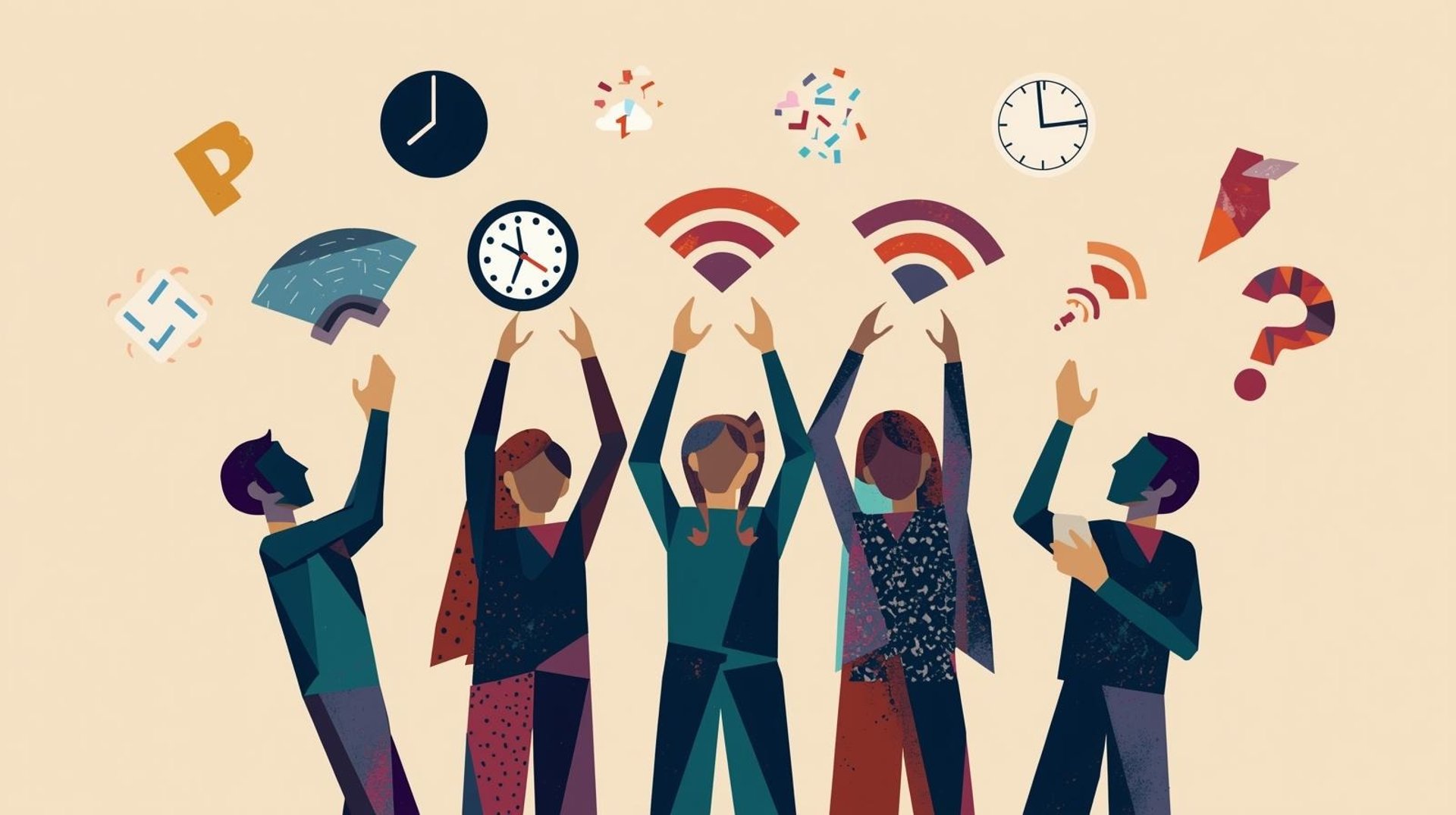The World Runs on Wi-Fi and Irony: A Satirical Look at Our Modern Lives
A witty satirical take on modern life — from smartphones and hashtags to consumer culture, work-life balance, and the daily comedy of the digital age.
SATIRE

The World Runs on Wi-Fi and Irony: A Satirical Look at Our Modern Lives
Introduction: Welcome to Planet Irony
If aliens were to land on Earth today, they’d probably mistake our smartphones for sacred relics and our Wi-Fi routers for shrines. And honestly, they wouldn’t be entirely wrong. We live in an age where our deepest connections happen over unstable internet connections, our strongest identities are our social media handles, and our loudest cries for help come in the form of memes. Welcome to modern life — equal parts comedy, tragedy, and endless buffering.
Smartphones: Smarter Than Their Owners?
There was a time when people carried maps, diaries, calculators, cameras, and alarm clocks. Now, all of those live in a sleek rectangle that mostly gets used for doomscrolling and arguing with strangers.
The modern phone can predict your commute, remind you to hydrate, and even tell you how much screen time you’ve wasted. Ironically, most of us respond to those reminders by… ignoring them and then opening another app. It’s like carrying around a genius assistant that we treat like a court jester.
And the obsession is universal. People panic more about a 5% battery warning than they do about climate change. Priorities, right?
Social Media Activism vs. Actual Activism
In the digital age, revolutions are measured not in protest marches but in hashtags. For every “movement,” there are millions of people who join in by posting a trending phrase — and then move on to posting brunch photos five minutes later.
It’s the activism equivalent of writing your name on a petition and then proudly declaring you’ve changed the world. The irony? We’ve built platforms that can mobilize millions in seconds, yet often the energy fizzles out before any real change can take root.
Of course, nothing unites humanity like a viral meme. Forget peace treaties — give people a funny cat video and suddenly borders don’t seem so important.
Consumer Culture: Buying Happiness (and Stress)
There’s an app for meditation. Another app to track how stressed you are. And another app to analyze why the first two apps aren’t working. All of them require subscriptions, of course.
We live in a world where self-care is a product, relaxation is a purchase, and happiness is something you can add to your cart — shipping fees not included. Even books that promise to teach you how to live without materialism are sold… as hardcover bestsellers, with deluxe editions.
The great paradox? We are the only generation in history that can order inner peace with next-day delivery.
Work-Life Balance: The Eternal Balancing Act
Work-life balance has become the mythical unicorn of adulthood. Everyone talks about it, but nobody seems to have actually seen it.
We schedule “me-time” in the same apps where we schedule endless Zoom meetings. We meditate to calm ourselves down — only to stress out because we didn’t meditate long enough. We buy planners to organize our lives, and then procrastinate by decorating the planners.
It’s as though we’re running on a treadmill that sells itself as a path to freedom. The more we chase balance, the more unbalanced we become.
Entertainment: Escaping the Escape
Streaming services promised us liberation from cable TV. Now we’re stuck in an endless maze of logins, subscriptions, and algorithms that recommend shows we’ll never actually watch.
We spend more time deciding what to stream than actually streaming. It’s the digital version of going to a restaurant, studying the menu for an hour, and then ordering the same dish you always do.
Ironically, entertainment has become another form of stress — except this time, we pay for it monthly.
Health & Fitness: Running in Circles (Literally)
Modern fitness culture is perhaps the greatest satire of them all. We drive to the gym, run on machines that go nowhere, then drive back home. We buy “smart” scales that tell us what we already know — that we’re heavier after pizza night.
We count steps religiously, as though 10,000 is the magical number that makes us immortal. And fitness influencers cheerfully sell “authentic lifestyles” while sipping sponsored protein shakes.
Meanwhile, the greatest form of exercise for most people is frantically searching for their phone in the morning.
Relationships in the Swipe Era
Once upon a time, people met partners at community events, college halls, or through family introductions. Now, the great love stories of our age begin with the words: “You up?”
Dating apps promise endless opportunities, but often deliver endless awkward small talk. We swipe left, swipe right, ghost, unmatch, and repeat — as though love were a video game where everyone’s stuck on level one.
Ironically, the apps designed to bring us closer together often leave us lonelier than ever. But hey, at least you can still order dinner while crying into your phone.
The Big Picture: A World That Satirizes Itself
When you zoom out, modern life feels like an elaborate joke that we’re all in on but none of us fully understand. We buy things we don’t need with money we don’t have. We chase likes from strangers while ignoring friends in the same room. We outsource thinking to algorithms and then complain about bias.
It’s as if the universe decided to test humanity by combining high technology with low attention spans. And so far, the universe is winning.
Conclusion: Laughing at Ourselves
Satire works because reality keeps writing the punchlines for us. The absurdities of modern life don’t need exaggeration — they just need observation.
If we can learn to laugh at our own contradictions, maybe we can start to untangle them. Because in the end, laughter is more than entertainment — it’s the pressure valve that keeps society from exploding under the weight of its own irony.
So the next time your Wi-Fi crashes during a “mindfulness” session on YouTube, just remember: life is a joke, and the punchline is probably buffering.



